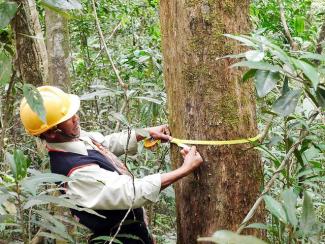Environmental concerns are among the chief impediments to Asia’s long-term development success. Rapid economic growth has led to dramatic increases in the use of natural resources and wrought unprecedented damage on Asia’s forests, fisheries, wildlife, and vulnerable ecosystems. Asia’s developing countries are among the world’s leading contributors to greenhouse gas emissions. At the same time, the Asia-Pacific region is also greatly affected by climate change due to the high concentrations of vulnerable populations living along coastal areas and river basins.
USAID supports regional partnerships and private sector engagement to improve natural resource management, accelerating energy sector transformation and reducing deforestation and emissions from the land use sector. USAID uses a market-based approach to strengthen sustainable fisheries management and combat illegal, unreported, and unregulated fishing, ensuring fisheries resources are legally caught and properly labeled. USAID promotes the application of environmental and social safeguards to protect valuable natural resources, sustain economic growth, and improve governance. .
To minimize threats to biodiversity and regional security, USAID’s regional wildlife trafficking efforts reduce consumer demand for illegal products and increase law enforcement capacities. USAID uses science and technology to better inform policies that address large-scale hydropower and irrigation, and to properly value ecosystem services.
For more information on our projects, please click here.

